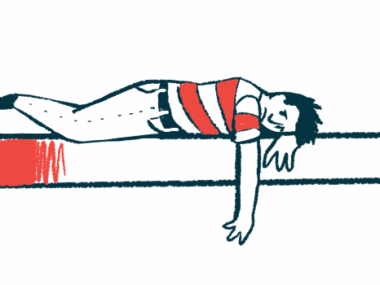Sex Influences Symptoms But Not Outcomes in ACTH-dependent Cushing’s, Study Suggests
Written by |

While men and women with adrenocorticotropic hormone (ACTH)-dependent Cushing’s syndrome have distinct symptoms and signs, these differences do not justify divergent diagnostic or treatment approaches since both sexes have similar outcomes, a study shows.
Disease recurrence and survival are comparable for both men and women with Cushing’s after surgery to remove syndrome-causing tumors, the study found.
However, despite these similar outcomes, men seem more prone to develop weak bones — a disease called osteoporosis. Thus, clinicians should be alert in identifying and treating related bone fractures in male patients, according to the study.
The study, “Sex Differences in Presentation but Not in Outcome for ACTH-Dependent Cushing’s Syndrome,” was published in the journal Frontiers in Endocrinology.
The overproduction of cortisol within the body is the hallmark of Cushing’s syndrome, and can result from endogenous — internal — and exogenous, or external causes. Exogenous Cushing’s usually occurs when a person regularly takes high doses of corticosteroids for an extended period of time, often for treating inflammatory diseases and ailments such as asthma.
Cushing’s disease is the most common form of endogenous Cushing’s syndrome, and occurs when a benign tumor in the pituitary gland leads to excess production of adrenocorticotropic hormone (ACTH). This overproduction causes the adrenal glands, which are small structures attached to the top of each kidney, to produce too much cortisol.
In more rare cases, the syndrome is caused by non-pituitary tumors that secrete excessive ACTH, referred to as “ectopic syndrome.” Some patients also may have benign or malignant tumors of the adrenal glands that directly secrete excessive cortisol.
People with Cushing’s syndrome show a variety of symptoms, including excessive weight gain around the torso, osteoporosis (weak bones), high blood pressure, and increased tendency to bruise easily. Other symptoms are insulin resistance — usually a sign of prediabetes — and dyslipidemia, or abnormal amount of fats in the blood. Neuropsychiatric disorders are another symptom of Cushing’s syndrome.
Normally, the first-choice treatment is surgery to remove the ACTH- or cortisol-producing tumor. This is done either by transsphenoidal surgery of the pituitary, ectopic tumor resection, or adrenalectomy, the removal of the adrenal glands.
Cushing’s disease occurs up to five times more often in females, but male patients are at a relatively higher risk of having ectopic tumors. Apart from that, sex differences among these patients remain unclear, with some studies giving conflicting findings.
To gain a more accurate understanding of these sex differences, the researchers now compared the symptoms, laboratory values, surgical outcomes, and comorbidities, or additional disorders, between men and women with ACTH-dependent Cushing’s syndrome.
The study included 130 people — 37 males and 93 females — with either pituitary or ectopic tumors. The patients were diagnosed between 2000 and 2016 at the Leiden University Medical Center, in the Netherlands, or at the Charité Universitätsmedizin Berlin, in Germany. The mean age at diagnosis was approximately 45 years for both sexes.
Results revealed that blood levels of cortisol were within the same values for both men and women, but ACTH concentrations were higher in males at the time of diagnosis — a median of 116 versus 57 nanograms per liter (ng/L).
At diagnosis, osteoporosis also was more common in males than in females (48.6% vs. 25.0%), accompanied by more vertebral fractures (16.2% vs. 5.4%). After surgery, males still continued to be more affected by osteoporosis (50.0% vs. 31.0%).
Significantly more men also had low red blood cell levels (anemia) following surgery (75.9% vs. 36.8%).
However, no differences were seen in the origin, pituitary tumor size, diagnostic and therapeutic strategy, or surgical outcome — including disease recurrence, or death rates — between sexes.
The findings suggest that males and females with ACTH-dependent Cushing’s syndrome indeed have different clinical patterns. But these differences “do not justify different diagnostic strategies or treatment based on sex, considering the similar surgical outcome,” the researchers said.
The team, however, calls on clinicians to pay extra attention to male patients regarding the diagnosis and treatment of osteoporosis, with fractures, which appears to be more frequent in men.





